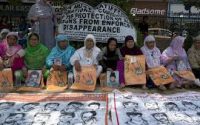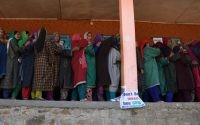$100 Website Offer
Get your personal website + domain for just $100.
Limited Time Offer!
Claim Your Website NowIt isn’t too late to hold a judicial inquiry into the exodus of Kashmiri Pandits
Source:-https://www.nationalheraldindia.com
Former Chief Minister of Jammu and Kashmir Farooq Abdullah recently called for a probe by a judge of the Supreme Court, into the exodus of Kashmiri Pandits from the Kashmir valley in 1989-1990.
He chose to blame the then Governor Jagmohan for the exodus saying that he ‘took them away’ on the false promise of ensuring their return within three months.
The former CM and MP was quoted in newspaper reports as saying, “Let a sincere and honest judge or a team of judges investigate the matter and come out with their report. It will clear many minds, especially among younger Kashmiri Pandits, that it was not Muslims who threw them out.”
Several independent observers actually seem to support the contention of Farooq Abdullah that the exodus of Pandits was arranged by the then Governor, Jagmohan.
Journalist Tavleen Singh, who has extensively covered Kashmir, in her book, Kashmir- A tragedy of errors, says, ‘Many Muslims blamed Jagmohan for having encouraged the Hindus to leave. Whether this was true or not, they certainly left en masse within days of his arrival and they appear to have been assisted logistically in their exodus.’
She went on to say, ‘In Sopore’s main bazaar, the group of youth who were acting as my guides, introduced me to a Hindu shopkeeper named Jai Kisen who told me nervously that most of the Hindus had left in the dead of the night at Jagmohan’s behest but that he did not feel the need to go because he did not think he was in any danger from his Muslim neighbours’.
A Committee appointed by the People’s Union of Civil Liberties, the Citizens For Democracy, the Radical Humanist Association and Manav Ekta Abhiyan, comprising eminent jurists V.M.Tarkunde, Rajinder Sachhar and others, in March 1990, said they ‘could find no trace of communal antagonism between Hindus and Muslims’.
Although some businessmen and doctors, whom a Committee member met at Delhi, told him that they had to close their business in Srinagar and had to come out, the Committee did not find an atmosphere which would have triggered an exodus. The Committee’s findings rather revealed heroic tales of human endurance and goodwill in the face of a common tragedy.
The Committee in its report observed:
A Hindu businessman from Amritsar, who happened to be at Srinagar when the Committee visited the town, told them that the local dealers were quite friendly and were sorry that he was unable to collect his payment owing to curfew.
A number of non-Muslims, whom a Committee member N. D. Pancholi, met at his own initiative, told him that the militants chose to kill irrespective of community. In fact, more Muslims had been killed than Hindus. Several Hindus from Khanka Maulla, located in the old city of Srinagar also ‘confirmed there was no communal feeling in the Muslims’.
A priest named Mantu Das told that all Hindus in the locality were receiving full cooperation from local Muslims. Because of curfew and blockade of Jammu- Srinagar Road, the local Muslims shared their rations and other items of daily requirement with them.
A Kashmiri Pandit Jagan Nath, who met the Committee at New Delhi on 25. 03 .1990 also said there was communal harmony in the valley and those who were coming out had either over-reacted to the situation or left due to other reasons like the onset of winter, curfew and closure of schools, banks, post offices etc. The Muslims of Kashmir genuinely wanted Kashmiri Pandits to return to the valley. Not a single case of looting or arson of non-Muslim property had taken place. He said he himself wanted to return soon.
A taxi driver told the Committee that some with vested interests were spreading rumours that non-Muslims migrating to Jammu, Delhi etc would be given free plot, cash and other facilities. There was a deliberate attempt to communalise the situation, he said.
The Kashmiri Muslim’s contention is that Kashmiri Pandits are being evacuated under a conspiracy to communalise the situation in the valley and also outside. According to them, Jagmohan’s administration was creating panic among Pandits that there was going to be a massive combing operation to ferret out pro-Pak militants, that security forces would have to shoot down offenders and in such a melee, it would be impossible to distinguish between Pandits and Muslims.
The Committee also found that the local papers, whenever they appeared always carried an appeal to the Pandits to return to their homes. This appeal also carried a warning to Muslims against occupying, tampering with, or selling of the movable and immovable property of Kashmiri Pandits lying vacant. In some case, the keys had been entrusted to the Muslim neighbours by the departing Pandits.
A report in Asia Watch by James Goldston and Patricia Gossman contain similar findings. It says that ‘with Government assistance a large part of the Hindu community in Kashmir, numbering 90,000, left the valley in 1989- 90. The Government’s role in encouraging the exodus, particularly the part played by former Governor Jagmohan, is a matter of considerable controversy in Kashmir and among the Hindu refugees in Jammu and New Delhi. Some reports suggest that not all the Hindus left the valley out of fear of militants but may have been encouraged to leave by authorities who hoped to undermine support for the militant movement.’
The report also says that ‘a number of Hindu refugees from Kashmir have subsequently denounced the Government for encouraging them to leave under false pretences.
In a letter to the editor of Alsafa in October 1990, some twenty Pandits alleged that: There can be no dispute about the fact that the Kashmiri Pandit community was made a scapegoat by Jagmohan, some self- styled leaders of our community and other vested interests.
While the question whether Pandits left the valley on their own or whether their exodus was arranged by the Governor can be settled only by a judicial enquiry, what appears certain is that the common Kashmiri Muslim did not drive them out of the valley.



